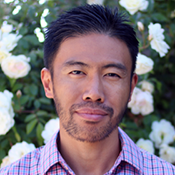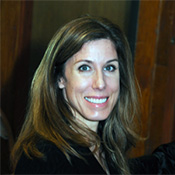Alumni Spotlight: Jeri Mares ‘15, Mentoring Program Coordinator
Alumni Spotlight: Jeri Mares '15, Mentoring Program Coordinator
 "Humans have an innate drive towards attachment. In many ways, attachment is like survival," says Jeri Mares about her work with couples, which she calls her most impactful. Never one to cut corners, she cites research which supports that a healthy, loving, high-functioning relationship benefits several aspects of health. "But of course we know that to be anecdotally true as well," she adds.
"Humans have an innate drive towards attachment. In many ways, attachment is like survival," says Jeri Mares about her work with couples, which she calls her most impactful. Never one to cut corners, she cites research which supports that a healthy, loving, high-functioning relationship benefits several aspects of health. "But of course we know that to be anecdotally true as well," she adds.
Yet it's clear that Jeri's passion for her work and connections towards her clients is greater than the expertise and clinical acumen she clearly possesses. "Helping couples achieve more lasting and enduring satisfaction in their relationships means that we're making little ripples in the overall health of people themselves," she explains.



 "Bibliotherapy can be a powerful medium to help process distress," says Dr. Ritchie Rubio, faculty member with the
"Bibliotherapy can be a powerful medium to help process distress," says Dr. Ritchie Rubio, faculty member with the  Abigail Johal, a student in the Clinical Psychology Program, started a group for LGBTQ-identified students enrolled in high school programs at Contra Costa College in the 2017-2018 academic year. Wright Institute faculty member Daniela Kantorová, PsyD has worked with students Joshua Chow and Candice Bain to establish a safe space for this student group while continuing to build on Abigail's work.
Abigail Johal, a student in the Clinical Psychology Program, started a group for LGBTQ-identified students enrolled in high school programs at Contra Costa College in the 2017-2018 academic year. Wright Institute faculty member Daniela Kantorová, PsyD has worked with students Joshua Chow and Candice Bain to establish a safe space for this student group while continuing to build on Abigail's work. Wright Institute
Wright Institute  Since graduating from the Wright Institute
Since graduating from the Wright Institute 

 When choosing a graduate program, Jennifer Rillamas was drawn to the diversity of thought and backgrounds represented in the faculty and student body in the Counseling Psychology Program at the Wright Institute. “I felt the Wright would support me in my own diversity, and that this is where I was meant to be,” she explains.
When choosing a graduate program, Jennifer Rillamas was drawn to the diversity of thought and backgrounds represented in the faculty and student body in the Counseling Psychology Program at the Wright Institute. “I felt the Wright would support me in my own diversity, and that this is where I was meant to be,” she explains.